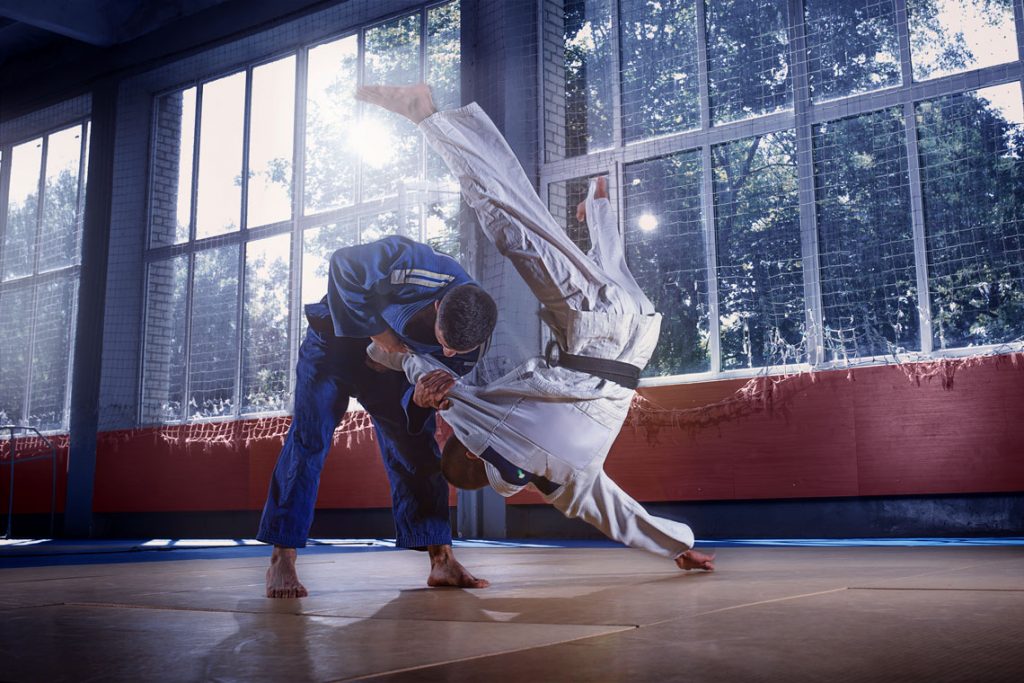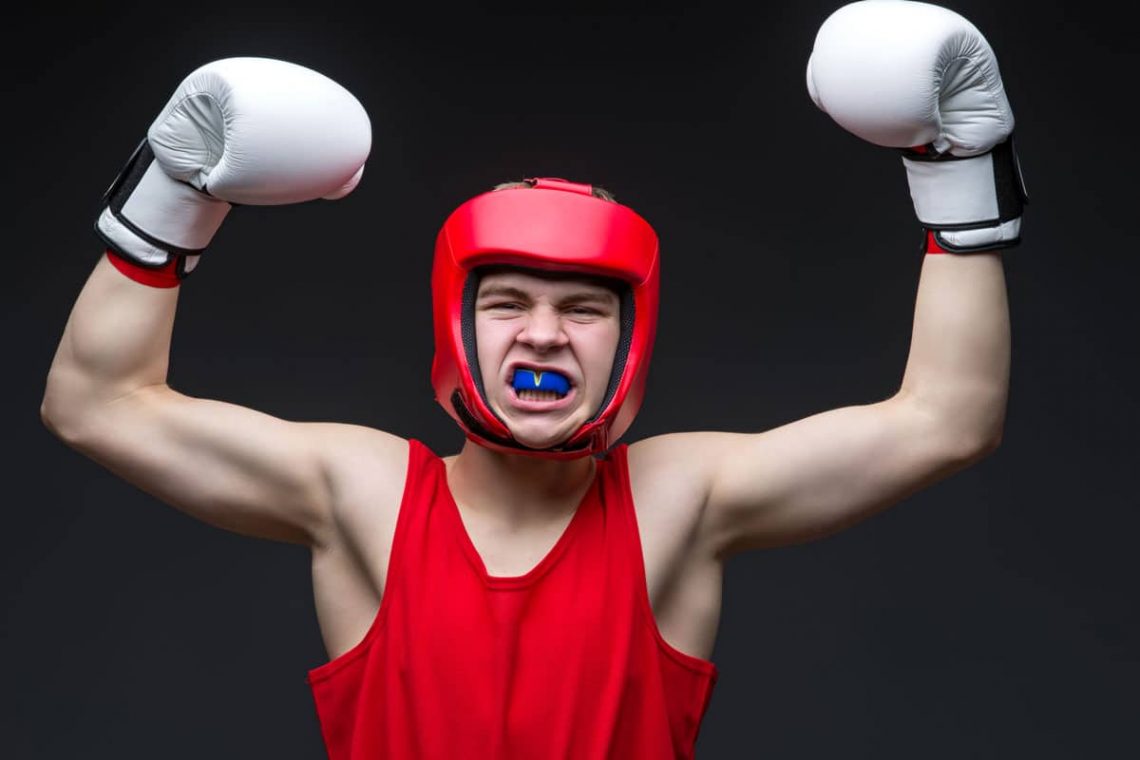Many dental techniques commonly used today have their origins hundreds or even thousands of years ago. The oldest dentures, for example, date back to Ancient Egypt. But mouthguards are — relatively speaking — a recent invention. In their short life, they’ve developed from simple, one-size-fits-all devices into customisable, invaluable pieces of personal protective equipment especially during contact sports and other sporting activities.
History of Mouthguards
Let’s start with a brief history of mouthguards. The first mouthguards were developed in 1890 for boxers. They weren’t intended to protect teeth so much as gums and lips. Lacerated gums were a big problem for early boxers, so London dentist Woolf Krause designed a simple guard to prevent this. Krause’s son, himself a dentist and a boxer, refined this concept and replaced the original material, known as gutta percha (a latex-derived plastic) with Vella rubber.
Mouthguards were prevalent in boxing by the late 1920s and started entering the dental literature. But it wasn’t for another 20 years, in 1947, that acrylic resin was used to create mouthguards. These could be moulded to fit over the upper and lower teeth, providing a slimmer, more comfortable profile. Their use expanded from boxing into basketball and football.
Research carried out by the American Dental Association in the 1950s led them to recommend all contact sports employ the use of mouthguards in the 1960s. High school football teams were required to wear them from 1962 onwards.
Today, the Australian Dental Association recommends the use of mouthguards for people of any age playing a sport where one might be dealt a blow to the face. This isn’t just limited to contact sports, either — acrobats, for example, are recommended to use mouthguards. In the US, the ADA recommends the use of mouthguards for 29 sports — although only 4 have made them mandatory.
Modern Mouthguards of Today
Latex and acrylic mouthguards are still the norm. You can purchase mouthguards in most pharmacies. These simple designs allow you to heat a pre-fabricated guard and mould it generally to the shape of your teeth. It’s not precise, but it’s better than a non-adjustable guard.
Dentists, however, are able to make highly customised mouthguards for their patients. Not only will they exactly fit the shape of the wearer’s teeth and bite, but they can also be made in a wide variety of colours. Different “strengths” of mouthguard can be made for different sports, depending on the level of protection needed.
These customised mouthguards provide superior protection not just to the teeth, but the surrounding soft tissue as well — the gums, inner cheeks and inside of the lips.

Custom Sports Mouthguards vs Boil and Bite Mouthguards
The off-the-shelf mouthguards you buy at a pharmacy are sometimes referred to as “boil and bite” mouthguards, due to how they’re made. To fit the mouthguard to your teeth, you submerge them in boiling water, then cool them rapidly. While the plastic is still soft, you bite into the guard to shape it.
Custom mouthguards made by a dentist start by taking an impression of your teeth, and build the mouthguard up around it.
There are many benefits of a custom made mouthguard over a boil and bite mouthguard.
- Superior fit. The custom mouthguard is specifically designed for your mouth and fits your teeth exactly. This means it’s less likely to fall out during an impact.
- Superior protection. By conforming to the shape of your teeth accurately, the mouthguard provides better protection. It’s better able to distribute the force from an impact across the jaw and face, to lessen the strength of the blow.
- Superior functionality. In a big sports game, being able to talk and communicate with the rest of your team is important. Boil and bite mouthguards, which are often ill-fitting, impede the wearer’s ability to talk during a game. Custom mouthguards are specially designed with communication in mind. They’re as thin as they can be while still providing protection, and fit snugly to the teeth so as not to interfere too much with the lips and tongue while talking.
- Superior comfort. A properly-fitting mouthguard is much more comfortable than a boil-and-bite mouthguard. They don’t rub against the soft tissues and gum and allow easy speech.
All of that said, any mouthguard is better than no mouthguard, particularly when playing any sort of contact sport.
Mouthguards Provide Essential Protection For Sports Athletes
Many don’t like wearing mouthguards because they feel they’re annoying, an inconvenience, or uncomfortable. When playing contact sports, though, they can be an incredibly important piece of protective gear. Just like you’d rather play most sports with a helmet to protect your head, you should wear a mouthguard to protect your teeth.
- Almost 40% of all dental injuries are related to sports.
- 80% of traumatic dental injuries occur to the top front teeth. These are usually some of the best guarded by mouthguards.
- Each year, over 5 million teeth are broken or knocked out of their socket.
- A dental implant is usually the best way to replace a single missing tooth. The cost of a dental implant restoration is around $5,000 to $7,000. A custom-fitted mouthguard from your dentist is around $90-$150.
- Half of all children and teens will suffer a traumatic dental injury before they graduate high school.
- Oral emergencies such as broken or missing teeth account for some 600,000 emergency dental visits a year.
- There are three times as many facial and dental injuries due to sporting activities than from violence or traffic incidents.
- You are 60 times less likely to suffer a dental injury while wearing a mouthguard.
- Over 200,000 oral injuries are prevented in the US each year through the use of wearing mouthguards.
By wearing a sports mouthguard, you are less likely to suffer a traumatic dental injury. Any injury you may still suffer will be less severe with a mouthguard than without it.
The cost of a dental implant restoration is around $5,000 to $7,000. A custom-fitted mouthguard from your dentist is around $90-$150.
Mouthguards and Kids

It’s important for children of all ages playing contact sports to wear mouthguards. Oral injuries sustained at a young age, especially during important developmental years, can cause lasting problems later in life.
From protecting against lacerations to protecting teeth from chips, cracks, breaks, and falling out, mouthguards also serve another purpose; they help distribute the force from a blow to the face, lessening the overall impact. That’s not to say they might prevent a concussion — more research needs to be done, and it doesn’t look like it’s the case — but it can make injuries less severe than they might otherwise be.
If you’re into sports, or your children are, contact us today to find out about a customised mouthguard. We’ll be only too happy to create something that fits well, keeps you protected, and looks just like you want it.
Create Your Own Custom Designed Mouthguard
At Enamel Dental Studio we specialise in creating high quality mouthguards that will protect your teeth, are comfortable and unique to your style. Click here to find out more about customising and ordering your custom mouthguard.

